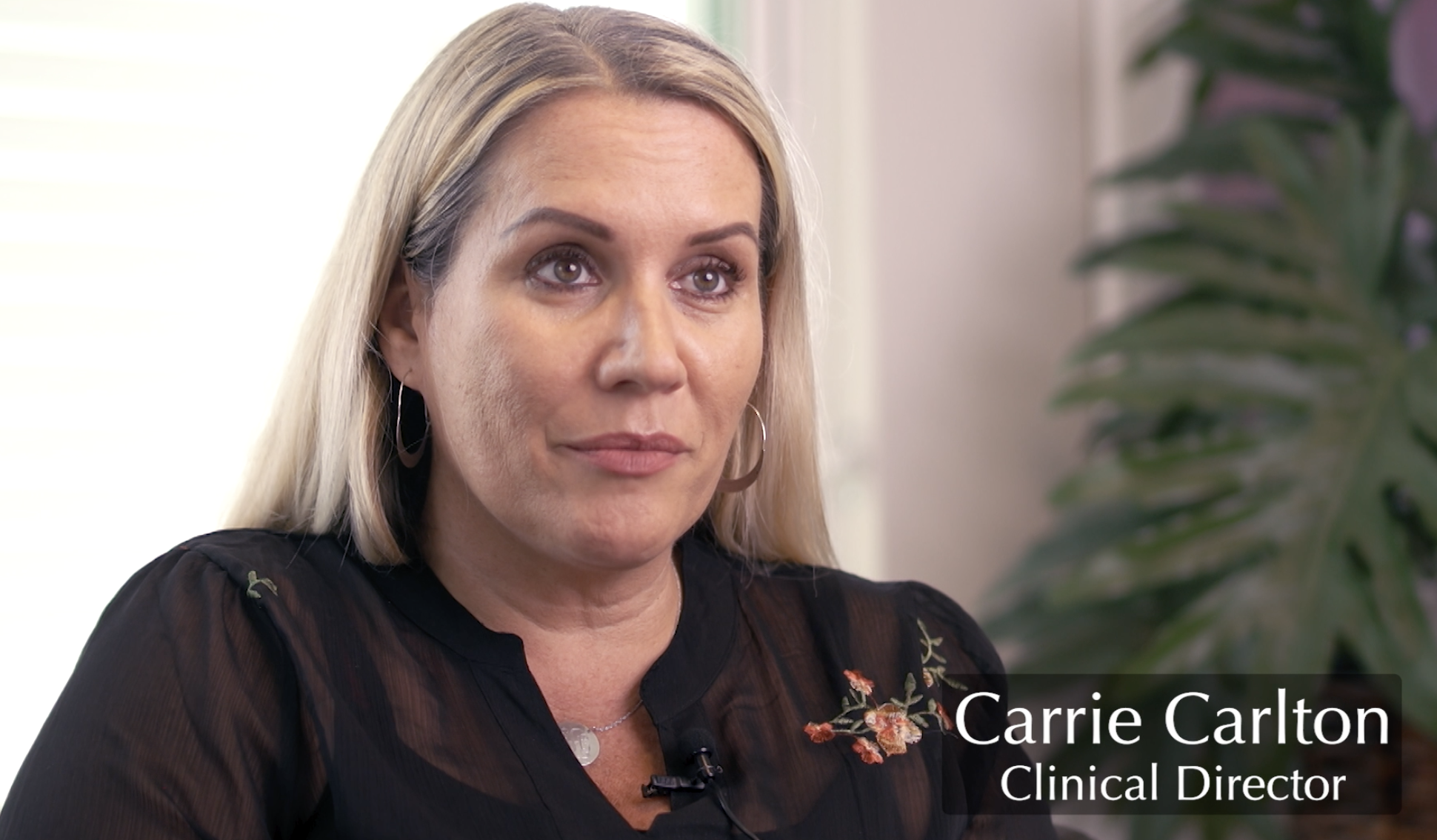

Interview with Therapist Carrie Carlton on Addiction & Trauma
Exploring Effective Dual Diagnosis Treatments
Carrie Carlton, LCSW recently shared her thoughts about how Beachway Therapy Center helps clients with a history of trauma heal their old wounds and recover from addiction. She also explains why it’s so important for clients with a history of trauma to get professional support rather than trying to recover on their own.
What Is Dual Diagnosis?
Dual diagnosis is the clinical term for an addiction paired with at least one other mental health condition. For example, someone with alcohol use disorder may also have depression or generalized anxiety. When someone arrives at the rehabilitation center, it’s important for staff members to understand which condition is affecting the individual’s life the most.

What Is Unique About Beachway Therapy Center's Treatment Approach?
Beachway Therapy Center’s treatment approach is unique because staff members focus on addressing symptoms caused by a “legacy of trauma.”
What are common symptoms of someone suffering from trauma?
According to Carlton, a history of trauma may lead to the following symptoms:
-
- Emotional dysregulation
- Self-harm
- Panic attacks
- Drug addiction
- Depression
- Anxiety
- Disordered eating

Why Is Seeking Professional Help to Treat Mental Health, Trauma, and Addiction So Important?
Safety is extremely important for people recovering from trauma, addiction, and other mental health conditions. A residential treatment center offers a safe, controlled environment for beginning the recovery journey. Staff members are always available to provide support and encouragement, easing the pain of opening up old wounds and exploring the root causes of an addiction.
What Is the Most Rewarding Part of Being a Trauma Therapist at Beachway?
Carlton says it’s rewarding to work with clients over several weeks rather than providing short-term support. Many people arrive “when they’re raw, they’re vulnerable … maybe they believe that they’re broken.” Eventually, they open up to her and start applying Beachway’s recommendations. It’s a big win when someone comes in feeling broken, realizes they just needed to heal some of their old wounds, and leaves 6-8 weeks later as a different person.

GET TO KNOW CARRIE CARLTON
Carlton has been in a leadership role at Beachway Therapy Center since 2014. She also has 15 years of experience providing direct support to patients struggling with substance abuse, mental health conditions, and trauma. As a Certified Clinical Trauma Professional, Carlton uses elements of cognitive behavioral therapy, dialectical behavior therapy, solution-focused strategies, and family systems therapy to help clients create more meaningful lives.
She also recognizes the effects of trauma on individuals and family systems, allowing her to approach every client with a blend of compassion, empathy, and honesty. Her approach puts people at ease, making it easier to address underlying issues that have the potential to affect daily functioning. Carlton obtained a Bachelor of Arts in Social Work from Florida Atlantic University and a Master of Social Work from Barry University in Miami.

Learn More About Beachway’s Specialty Programs
Beachway Therapy Center offers four programs to help clients recover from addiction and other mental health disorders:
- Medical detox: Detoxification, or detox, is the first step in recovering from an addiction to alcohol or drugs. Beachway Therapy Center offers personalized detox plans to keep clients safe during this process. Clinical medical staff is on hand to monitor vital signs and manage any withdrawal symptoms.
- Inpatient/residential treatment: Enrolling in residential treatment gives clients access to 24/7 support, making Beachway’s residential program ideal for people with moderate-to-severe substance use disorders. The rehabilitation center has luxury amenities and experienced treatment professionals available to provide advice and support.
- Intensive outpatient treatment: After residential treatment, outpatient services make it easier for clients to balance recovery activities with other responsibilities. Beachway’s outpatient program includes individual therapy, family therapy, and holistic therapy to help clients recover from their mental health conditions and repair their family relationships.
- Aftercare: Aftercare services reduce the risk of relapse and help clients stay on track when they return to their normal routines. Beachway Therapy Center offers two levels of aftercare, ensuring each client has the support they need to remain sober.
Beachway Therapy Center also has a specialized program for clients suffering from trauma. Theaddresses the many symptoms associated with a long history of trauma, helping clients improve their coping skills and refrain from using drugs and alcohol. Clients with any form of trauma can benefit from this program, but it’s especially helpful for people who need post-traumatic stress disorder treatment


